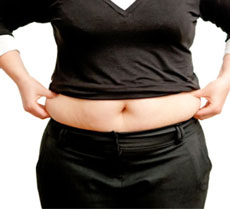
Researchers at the Hofstra North Shore- LIJ School of Medicine and Feinstein Institute for Medical Research conducted a retrospective analysis which found that morbid obesity can prevent people from potentially donating their kidneys to save others lives. The risk of operation complications and the development of chronic conditions linked to obesity (type 2 diabetes, heart disease, etc.) generally exclude morbidly obese patients from donating their organs.
The study was a single-center, retrospective analysis of 104 potential living kidney donors between 2008 and 2011 who were grouped according to their body mass index (BMI). Those who had a BMI higher than 35 kg/m², which classifies them as morbidly obese, were excluded from the donation and referred to a nutritionist. The nutritionist then created an individualized diet and lifestyle modification for each potential donor and followed up with them throughout the study period. Of the total 23 who were considered morbidly obese, only 3 succeeded at losing weight and donating.
“As a next step, we must conduct larger studies that assess how vast a problem this is on a national level and determine how best to expand our living donor pool for kidney transplantation,” Mala Sachdeva, MD, assistant professor of medicine at the Feinstein Institute for Medical Research, was quoted as saying.
To increase the size of the donor pool to include morbidly obese patients, it is suggested that potential donors that are excluded from donation because of a high BMI should participate in more rigorous weight loss programs, check in more regularly for follow ups at the transplant center, and join social support groups for motivation.
“Something needs to be done to increase the number of live donors but also to make it as safe as possible for them to donate.”
Source: National Kidney Foundation 2012 Spring Clinical Meetings, May 2012
